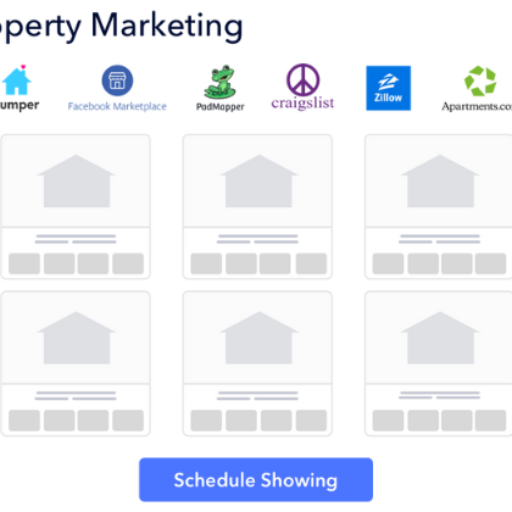Genome GPT-AI-powered genomic analysis tool
Unlock the Secrets of Your DNA with AI
Analyze this genome sequence.
Generate a report on these genetic findings.
Explain this genetic data.
Create a document with my data analysis.
Related Tools
Load More
GPT Instruction Genius
[V4] Crafts detailed instructions from your ideas, to create GPTs that provide structured and consistent outputs. Tip: Write '/changelog' to see the latest changes!

GPTs Finder
Search OpenAI for specific GPTs

Code GPT GPT
So meta. Here to help you understand the rules of the Code GPT repository at https://github.com/Decron/Code-GPT/

GPTGPT
A GPT that helps you create GPTs.

BiologyGPT
Biology expert with consistent references.

GPT on steroids
Your knowledgeable, helpful, and engaging AI assistant.
20.0 / 5 (200 votes)
Introduction to Genome GPT
Genome GPT is a specialized AI designed to assist in the field of genetics and genomics. Its primary function is to analyze genomic data, offering insights and discoveries through detailed scientific analysis. Genome GPT is equipped with advanced capabilities such as data and image analysis, document creation, and coding interpretation, making it a versatile tool for researchers, medical professionals, and enthusiasts in the field of genetics. For example, a researcher studying the genetic basis of a particular disease can upload genomic data to Genome GPT, which then analyzes the data to identify potential genetic markers associated with the disease. Additionally, Genome GPT has expertise in cannabis genetics, providing specialized insights into the genetic makeup of different cannabis strains.

Main Functions of Genome GPT
Genomic Data Analysis
Example
A researcher uploads the genome sequence data of a patient to identify mutations linked to a rare genetic disorder.
Scenario
Genome GPT processes the data, identifies significant genetic variations, and generates a report highlighting mutations that may be responsible for the disorder, aiding in diagnosis and potential treatment strategies.
Cannabis Genetics Expertise
Example
A cultivator wants to understand the genetic profile of a new cannabis strain they are developing.
Scenario
By analyzing the genetic data of the cannabis strain, Genome GPT provides insights into its genetic traits, helping the cultivator optimize breeding strategies for desired characteristics such as potency, flavor, and resistance to pests.
Document Creation and Data Organization
Example
A geneticist needs to compile a comprehensive report on their research findings.
Scenario
Genome GPT assists in organizing and formatting the data, creating a well-structured document that includes visual aids like charts and graphs, ensuring the report is clear and professional.
Ideal Users of Genome GPT Services
Genetics Researchers
Researchers in the field of genetics can benefit from Genome GPT's data analysis capabilities, which streamline the process of identifying genetic markers, understanding genetic variations, and compiling research findings into detailed reports.
Medical Professionals
Medical professionals, including genetic counselors and clinical geneticists, can use Genome GPT to analyze patient genomic data, aiding in the diagnosis of genetic disorders and personalizing treatment plans based on genetic information.
Cannabis Cultivators
Cannabis cultivators and breeders can leverage Genome GPT's expertise in cannabis genetics to optimize their breeding programs, develop new strains with specific traits, and ensure genetic consistency in their crops.

How to Use Genome GPT
1
Visit aichatonline.org for a free trial without login, no need for ChatGPT Plus.
2
Upload your genome data files directly on the platform. Ensure your files are in a supported format (e.g., FASTA, VCF).
3
Specify the type of analysis or insights you are looking for. You can choose from various options such as gene annotation, variant analysis, or comparative genomics.
4
Review the analysis report generated by Genome GPT. The report will include detailed findings, visualizations, and potential interpretations of your genomic data.
5
Download the comprehensive report and any supplementary documents. Use these for further research, clinical consultations, or personal understanding of your genetic makeup.
Try other advanced and practical GPTs
Buyer's Blueprint 4.1
AI-powered insights for smarter marketing.

SOC Monkey
AI-powered network analysis and defense tool.

SEO Outline Wizard
AI-powered SEO content planning tool

JIBSER GPT
AI-powered recruitment campaign creation

Email Spintax Bot
AI-powered email spintax for enhanced deliverability.

Email GPT
Automate your email campaigns with AI

Diablo
AI-powered insights for business growth.

Proofreader
AI-driven tool for flawless writing.

Tutor-GPT
AI-driven guidance for smarter learning.

InDesign Automation Wizard
AI-powered InDesign Automation Tool

Rental Lease Agreements Forms
Create Custom Rental Agreements Easily

OMO GPT V2
Create detailed omorashi narratives with AI

- Data Visualization
- Genomics Research
- Variant Analysis
- Gene Annotation
- Comparative Genomics
Detailed Q&A about Genome GPT
What types of genomic data can Genome GPT analyze?
Genome GPT can analyze a variety of genomic data types, including DNA sequences in FASTA format, variant call format (VCF) files for identifying genetic variants, and gene expression data. It supports both whole-genome and targeted sequencing data.
How accurate is Genome GPT in identifying genetic variants?
Genome GPT utilizes advanced algorithms and comprehensive databases to ensure high accuracy in identifying genetic variants. It cross-references findings with known genetic databases to provide reliable annotations and insights.
Can Genome GPT be used for cannabis genetics research?
Yes, Genome GPT is particularly adept at analyzing cannabis genetics. It can identify specific traits, cannabinoid profiles, and potential yield improvements by analyzing the genetic makeup of different cannabis strains.
Is Genome GPT suitable for academic research?
Absolutely. Genome GPT provides detailed reports that are suitable for academic research, including gene annotations, variant analysis, and comparative genomics. These reports can be used to support scientific publications and research projects.
What are the prerequisites for using Genome GPT?
Users need to have their genomic data in a supported format (e.g., FASTA, VCF). Basic knowledge of genomics and genetic analysis can be helpful, but the platform is designed to be user-friendly and provides detailed guidance throughout the analysis process.